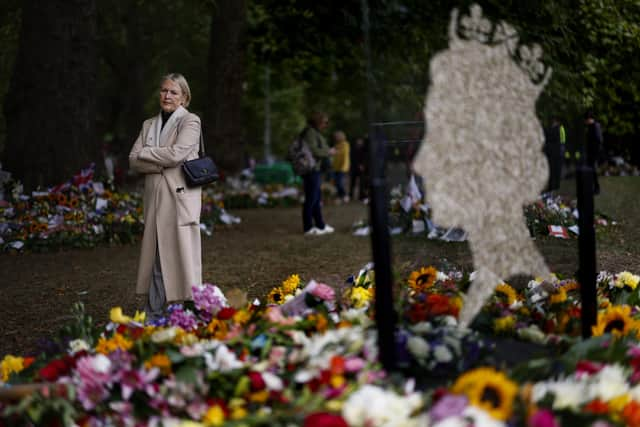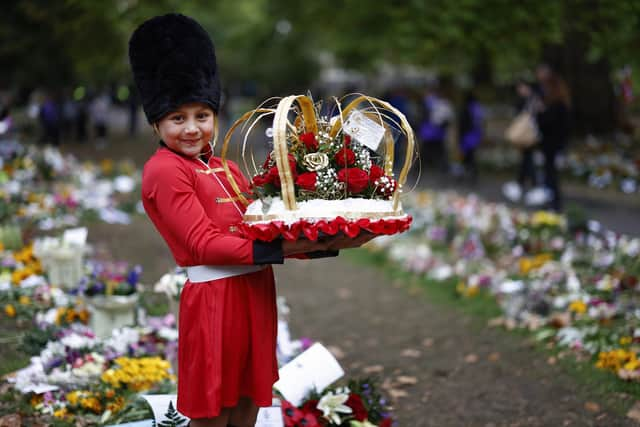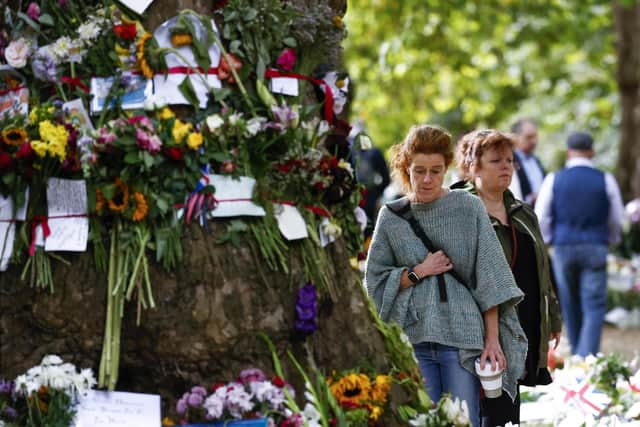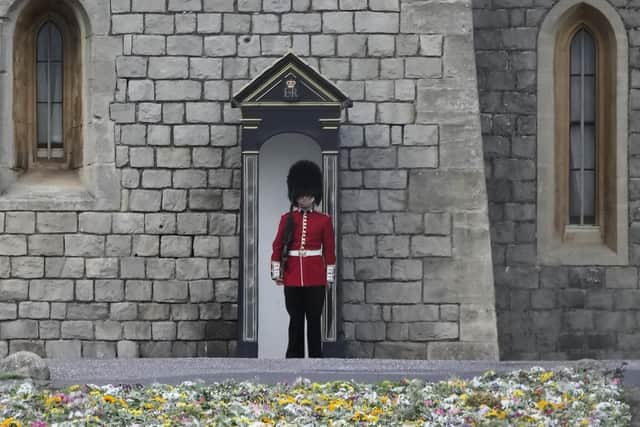Bell ringers across Yorkshire to toll sombre call for Queen's funeral
Creaking from cold, the queue marches on, teetering on capacity as more thousands join. Mourners arriving last night might pass the Queen's casket this evening.
Theirs is a determined tribute now, with warnings of waits surpassing a night and a day, even as the monarch's lying in state approaches its end. Lines may face an earlier close.
Advertisement
Hide AdAdvertisement
Hide AdAlready, there have been pauses, as the queues were too long. Then the ambulance service, called to Westminster Hall. Some people have passed out, collapsing or fainting. Others, tearful in tribute, speak of their need to complete this final journey.


James Birchall travelled from Liverpool. The 33-year-old said he will probably cry as he passes the monarch's casket, draped in the Royal Standard and on its raised catafalque.
"I absolutely loved the Queen," he added. "When she died I was overcome with emotion and I thought, I have got to come to London to see it."
On the the length of the queue, he added: "I am undeterred, I have got to be here because it is a once in a lifetime thing, I loved her so much."
Advertisement
Hide AdAdvertisement
Hide AdTatie Kirst joined the queue last night. She's brought her "good coat", the 38-year-old said. A stool, so she can sit when she tires.


"I think there is always a question, Is it worth it? And hopefully, yes. I wanted to be part of this, pay my respect to the Queen."
Under the nation's watchful eye, time marches on. The wheels are in motion for the Queen's state funeral on Monday, with final plans laid. And every day, more details emerge.
As dignitaries gather, presidents, kings and guests are dusting down their best outfits for a ceremony on a scale unseen since 1952.
Advertisement
Hide AdAdvertisement
Hide AdMonday will see the whole country brought to a halt. Crowds, lining the Mall, or watching from sofas. In town halls, civic squares, cathedrals and churches, all are poised to watch it unfold.


And as the bells peal, haunting and sombre, the wheels of history are once more to be set into motion.
Half muffled, with leather pads, this is a sound that will strike to the heart.
Advertisement
Hide AdAdvertisement
Hide AdA historic tradition, unbroken through time, echoing balefully across Yorkshire from small village churches to the steep heights of Cathedral spires.


When the Queen died, it set in motion a series of protocols under Operation London Bridge.
The passing bell tolled fully muffled last Friday, as is due only on the death of a sovereign.
Now, from 10am on Monday, every church bell in Yorkshire that can muster a ringer is to ring, half muffled, as a call to the nation.
Advertisement
Hide AdAdvertisement
Hide AdThis is an honour Adrian Moreton, tower master at Wakefield Cathedral, cannot fully enjoy. The gravity, on the death of a Queen, weighs too heavy.
"This has been done every time the sovereign has died," he said. "That has gone on forever. It's something we have always done.
"I hope it's the only time I have to do it."
Matt Curl is tower captain of the Knaresborough Guild of Change Ringers, which will ring from St John's Church.
"People do appreciate it. They say it's lovely to hear. And they do, to an extent, expect it."
Advertisement
Hide AdAdvertisement
Hide AdHere the Change Ringers rang last Friday on the death of the Queen, tolling slowly so the sound of each strike faded before the next one began.
"Everyone in the country recognises church bells," he said.
"People will appreciate that, I think, and understand it. It is special."
For 20 years, discussions have been held to fine tune the protocols on the death of the Queen. Now, ringers practice for Monday's call.
There are perhaps 6,000 churches with bells in the world, Mr Moreton mused, and all but 250 are in England.
Advertisement
Hide AdAdvertisement
Hide Ad"There aren't enough bell ringers for all the bells in the country," he sighed.
But then, they join, travelling further afield, to aid Wakefield in a peal attempt of Stedman Cinques, which if successful will take close to four hours.
This will be a challenge, attempted only on significant occasions such as the anniversary of the end of the First World War.
"There are not many who have rang the bells for a Coronation,” Mr Moreton concluded. “They will be more joyous I think."